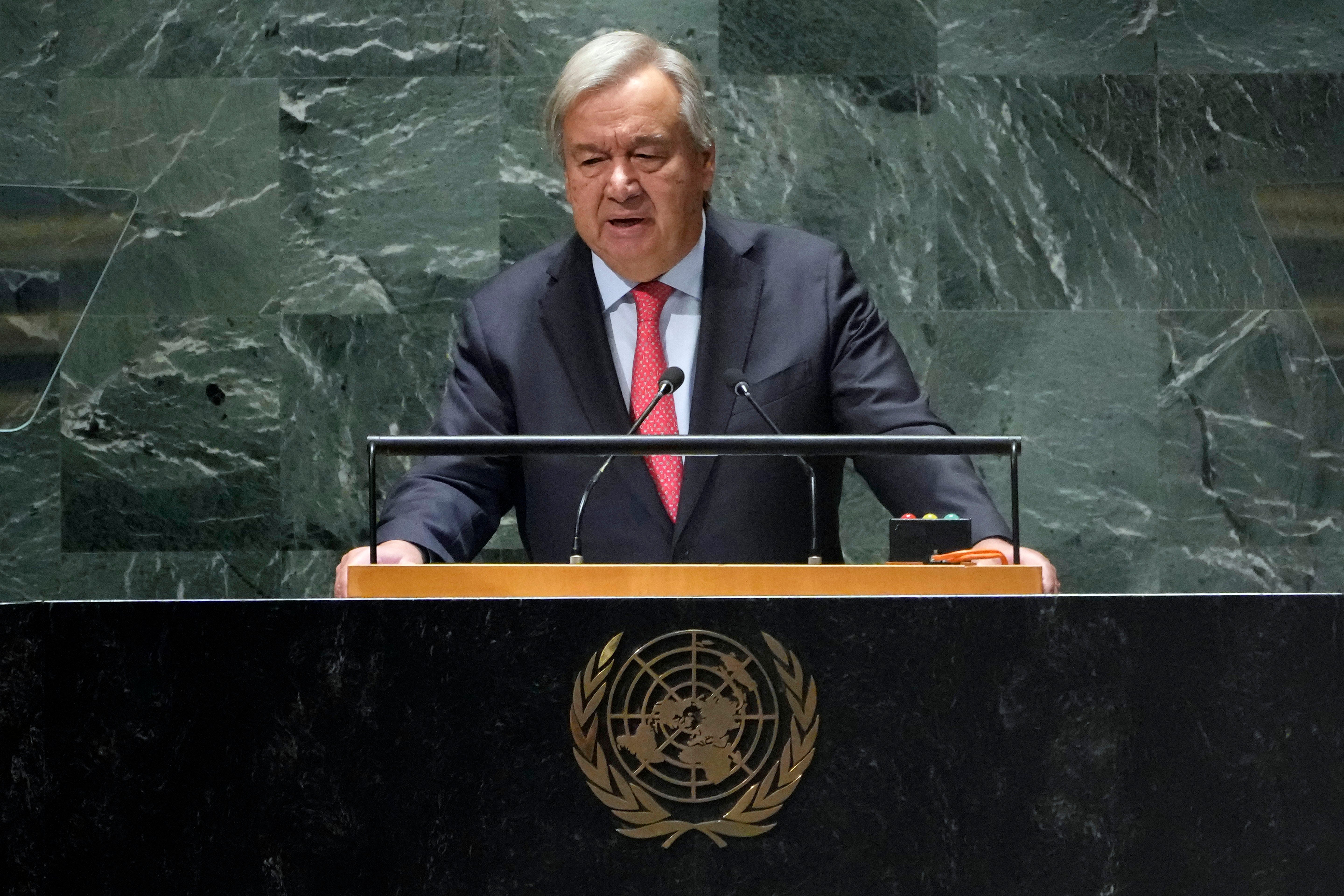UN chief decries violence in west Myanmar as two dozen villagers are reported killed in airstrikes
U.N. Secretary-General António Guterres has expressed concern over the escalating violence in Myanmar after reports and residents of the country's western Rakhine state said military airstrikes killed at least 25 members of the country’s Muslim Rohingya minority, including children

Military airstrikes in western Myanmar killed at least 25 members of the country’s Muslim Rohingya minority, including children, local media reported, prompting the U.N. chief to express concerns over the escalating violence.
According to the reports, the airstrikes took place early on Monday morning and targeted the village of Thada, north of Minbya township in Rakhine state. The strikes also left another 25 people wounded. The military government had no immediate comment on the reports.
U.N. Secretary-General António Guterres expressed deep concern over “the deteriorating situation and escalation of conflict in Myanmar,” according to a spokesperson.
The U.N. chief “condemns all forms of violence and reiterates his call for the protection of civilians, including aid workers in accordance with international humanitarian law, for the cessation of hostilities, and humanitarian access,” said Guterres' deputy spokesperson, Farhan Haq, in a statement on Monday.
Myanmar's military is increasingly using airstrikes to counter the widespread armed struggle against its rule since its seized power from the elected government of Aung San Suu Kyi in February 2021.
A report issued at the end of last year by Nyan Lynn Thit Analytica, a Myanmar research and advocacy organization, said that since the military's 2021 takeover, 936 civilians had been killed and 878 wounded in 1,652 airstrikes. It said 137 religious buildings, 76 schools and 28 hospital and dispensaries had been damaged by aerial attacks.
The Rohingya village of Thada is about 340 kilometers (120 miles) southwest of Mandalay, the country’s second largest city. However, almost 90% of Myanmar’s people are Buddhist, especially the Burman majority, which constitutes the Southeast Asian nation’s ruling class.
Two villagers from the Thada village told The Associated Press late on Monday that a jet fighter dropped two bombs on the village at around 1:30 a.m. Six children were among the 25 killed, they said, speaking on condition of anonymity for fears of arrests and reprisals.
The victims included those who had fled fighting in nearby villages, the villagers said.
Independent media including Myanmar Now, The Irrawaddy and Rakhine-based outlets also reported about the incident, giving death tolls between 21 and 23 on Monday and Tuesday. Different casualty tolls are common in areas of Myanmar that are difficult to access.
The AP was unable to independently confirm details of the airstrikes because reporting is greatly restricted and most phone services in the affected area has been cut by the military government.
Members of the Rohingya minority have long been persecuted in Buddhist-majority Myanmar. About 740,000 fled from Myanmar to refugee camps in Bangladesh when the military in August 2017 launched a brutal counterinsurgency campaign in response to attacks in Rakhine by a guerrilla group claiming to represent the Rohingya.
The Buddhist Rakhine are the majority ethnic group in Rakhine, which is also known by its older name of Arakan. The Rakhine, like other ethnic groups in Myanmar’s border regions, have long sought more autonomy from the central government, and have set up their own armed force, called the Arakan Army.
The well-trained and well-armed Arakan Army has been attacking army outposts in Rakhine since November and has claimed to have seized two towns and scores of military targets in at least five townships during the past three months. It also captured a town in neighboring Chin state. It has also been active in northeastern Myanmar, where it joined an alliance with two other ethnic armed groups to seize a large swath of territory along the border with China.
Until late last year, the Arakan Army had maintained a cease-fire in Rakhine with the military government but after the fighting began in the northeast, it launched an offensive on its home ground.
The military has been carrying out an increasing number of airstrikes in the township of Minbya, which has been largely under the control of the Arakan Army since late February.
“The expansion of conflict in Rakhine State is driving displacement and exacerbating pre-existing vulnerabilities and discrimination,” the statement by Haq, the U.N. deputy spokesperson, said.
It added that the U.N. chief was “alarmed by reports of ongoing airstrikes by the military,” including the one in Minbya.